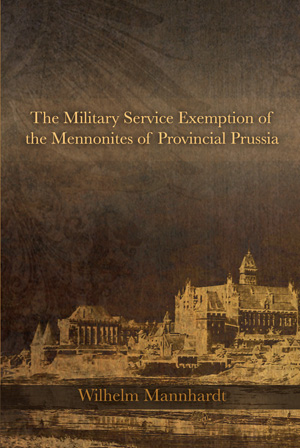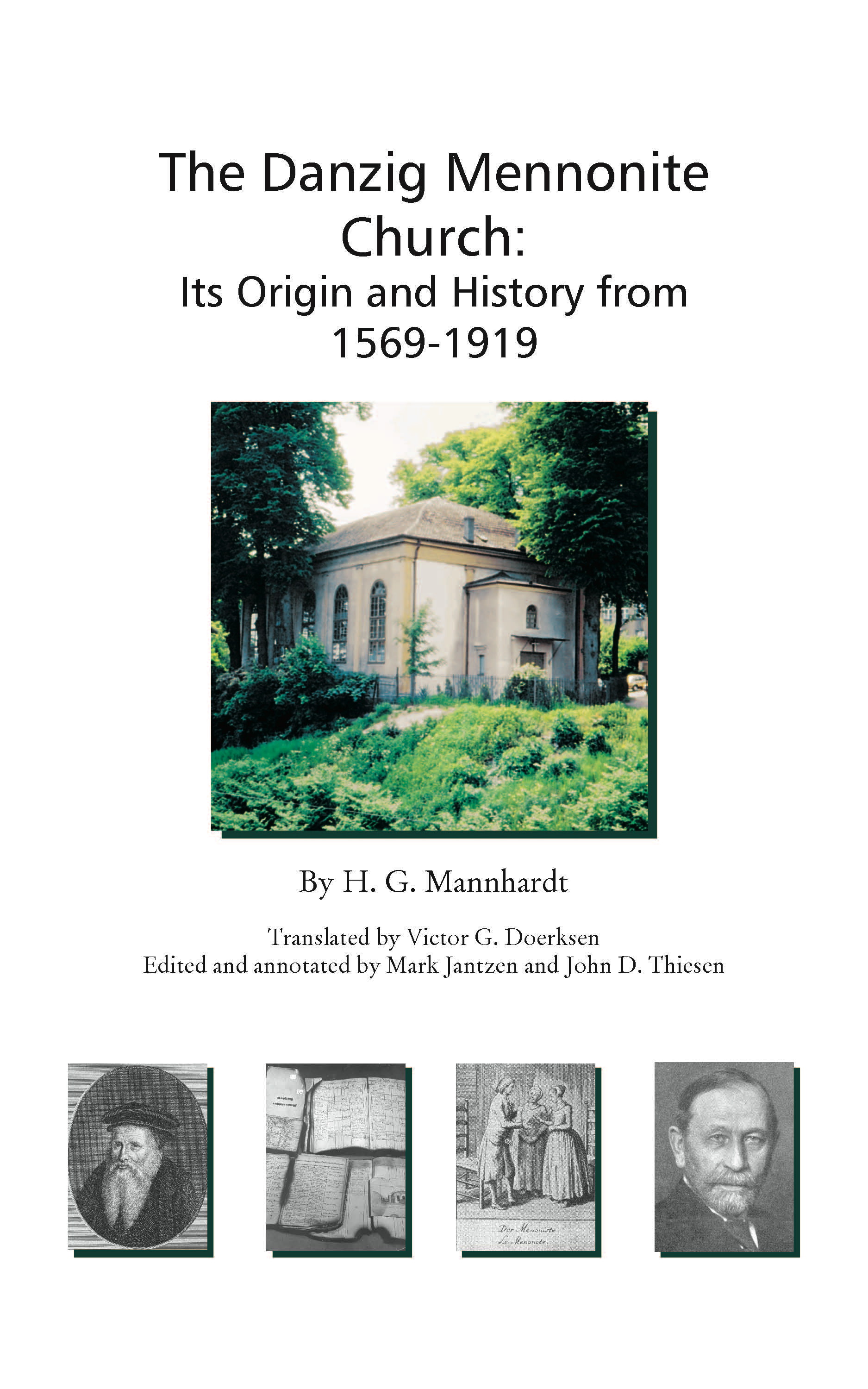
$20.00 paperback by Wilhelm Mannhardt. 394pp. 2013 ISBN 978-1-889239-08-8

In the mid-nineteenth century, the Mennonites of the Vistula Delta region (what is now northern Poland) found their centuries-old exemption from military service under debate both from without and within. Mennonite leaders assigned Wilhelm Mannhardt, the first German Mennonite to earn a Ph. D. and later a pioneer scholar of German folklore, to research and write an extended explanation of the Mennonite position. In his own words, he was to produce “an exact and correct knowledge of the main issues of the historical foundation on which the Mennonites base their religious perspective and privilege” with “dependable historical and statistical evidence that is closely related to the questions of nonresistance and exemption from military service.”
Mannhardt argued that the Mennonite principle of not serving in the military was based on religious conviction, not political or material expediency (as some of their neighbors and rulers suspected), and that it had a long history going back to the sixteenth century, including many formal recognitions by rulers. The main audience when the book originally came out in 1863 was Prussian government officials and legislators, and public opinion leaders. The book also was an element in the internal Mennonite debate about how to adapt Mennonite identity to their contemporary world. In an extended essay published in 1868-1870, Wilhelm Mannhardt argued that Mennonite exemption from military service, despite its authentic place in the Mennonite past, was no longer relevant and that Mennonites should accept some form of patriotic service.
Mannhardt’s book was the first, and for many decades the only, history of the Vistula Mennonites, who were one of the largest regional Mennonite groups from the sixteenth to the twentieth centuries, and the source of the more widely-known Russian Mennonite experience. His work is foundational for European Mennonite historiography and this English translation makes it available, after 150 years, to a much wider reading audience.
See this link for a Google Books scan of the German original.

(Co-published with Pandora Press)
This volume was originally published in 1919 in Germany for two reasons. One was the desire to reflect on three hundred fifty years of congregational history, going all the way back to the initial leadership provided by Dirk Philips, one of Menno Simons’ most important co-workers. Celebrating the centennial of the congregation’s church building, which stands to this day in Gdansk, Poland, was the second reason. The author, Hermann Gottlieb Mannhardt, served the congregation as pastor from 1878 to 1927 and was an important leader of the German Mennonite church. The wide-ranging congregational history he wrote places the Mennonite community of Danzig/Gdansk in its broader context as a religious minority that faced persistent discrimination in early modern and modern Germany and as a vibrant urban congregation in the midst of a large rural Mennonite community. Mannhardt’s account is important to Mennonite history for bridging the gap from the Anabaptists of the sixteenth century to the larger and better-researched Mennonite communities of Russia founded in the late 1700s by the Mennonites of the Vistula Delta region. This volume also reminds contemporary urban Mennonites that some Mennonites have always lived in cities.
Special features of this translation include an epilogue by Pastor Tomasz Ropiejko, lead pastor of the Pentecostal congregation that has used the former Mennonite church building in Gdansk since the 1950s. His account updates the history of the building and relates the struggles the congregation faced to reclaim this building for worship. Original maps make the streets and villages of Mannhardt’s account easy to locate. Editorial annotations to the original text explain passages that might otherwise remain obscure and highlight as well the places where Mannhardt’s nineteenth-century perspectives shaped his interpretations.
Mennonite Library and Archives
Bethel College
300 East 27th Street
North Newton, KS 67117-1716
Phone: (316) 284-5304
Fax: (316) 284-5843
mla@bethelks.edu